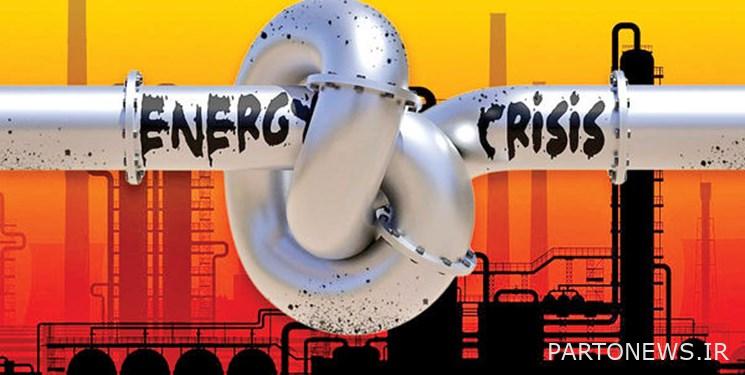The energy crisis severely weakens Europe’s industrial power

According to the report of Fars International Economic Group, quoted by Reuters, Europe needs to save energy consumption by industrial companies in this continent in the midst of increasing costs and decreasing supply, and these companies are changing their situation and their demand for natural gas and electricity. It has decreased in the last quarter.
However, it’s too early to get excited about this drop in demand because it’s not just because industrial companies have turned down the heat, but because factories that shut down may never reopen. .
* Europe at risk of losing its industrial status
While lower energy consumption will help Europe weather the crisis caused by the Russia-Ukraine war, executives, economists and industry groups warn that Europe’s industrial base could be severely weakened if high energy costs persist.
Energy-intensive industries such as aluminum, chemical fertilizers, and chemicals face the risk of permanent relocation of companies to places such as America where there is cheaper energy.
Even with an unusually warm October and forecasts for a mild winter, these factors have helped lower prices, but the price of natural gas in the US is still about one-fifth of what companies are paying in Europe.
Patrick, LammersBoard member Management Energy major E.ON said at a news conference in London last month: “A large number of companies have just stopped production … They are actually calling for a complete shutdown.”
He added: This can quickly lead to the deindustrialization of Europe. The euro zone is weak this monththe most It has recorded the growth level since May 2020, which indicates entering recession.
According to the estimate of the international agency, the demand of European industries for gas in the third quarter has decreased by 25% compared to last year. Analysts believe that widespread shutdowns are the reason for this decrease because productivity alone does not cause such a decrease in consumption.
A spokesperson for the European Commission said: “We are doing everything we can to avoid a reduction in industrial activity.”
economists They warned, as the weather gets colder and the use of heating devices increases, the industrial sector will be the first sector to face a decrease and shortage.
* The departure of European industries from this continent to cheaper places
European industries have been moving production to places with cheaper workers and lower costs for decades, but the energy crisis has accelerated the process, analysts said.
“If energy prices remain too high, parts of European industry will become structurally uncompetitive,” said Daniel Krall, an economist at the Oxford Economist. “Factories will close and move to America, where there is plenty of shale oil.”
According to Reuters, for example, the European Union’s aluminum production has been halved and decreased by 1 million tons over the past year.
All nine zinc smelters in the union have cut or stopped production, replaced by imports from China, Kazakhstan, Turkey and Russia, trade figures compiled by Reuters show.
Chris Heron Reopening the aluminum smelter would cost up to 400 million euros ($394 million) and is unlikely to happen given Europe’s uncertain economic outlook, said a member of industry association Eurometaox.
He added: “According to the historical record, when a temporary shutdown occurs, permanent shutdowns also occur.”
Western efforts to secure resources are not limited to energy, but also to basic minerals used in electronics and renewable energy infrastructure; These materials are at risk of high energy prices.
Brussels is expected to propose a new law (called the Vital Raw Materials Law) early next year to create essential mineral reserves in the transition to a green economy; These materials include lithium, bauxite, nickel and rare earths.
According to this report, an alarming industrial erosion is currently taking place in Europe.
According to the announcement Quich (Cefic), the European Chemical Industry Council, the continent became a net importer of chemicals this year for the first time in history.
According to the International Fertilizer Association, more than half of European ammonia production has been stopped and replaced by imports. Ammonia is a main element in the production of fertilizers.
Norwegian fertilizer company Yara has cut two-thirds of its ammonia production in Europe and has no immediate plans to increase production again.
Aswin Yara CEO Holsteder told Reuters: “We are closely monitoring the gas market situation and are making contingency plans.”
* Is it profitable to establish a new factory in Europe?
group “sorry“, bigthe most Last month, the World Chemicals Group questioned whether new plants in Europe were commercially viable.
The company also warned that if its gas supply is halved, production at the main site in Ludwigshafen, Bozorthe most Shut down Germany’s industrial electricity consumer.
Some large companies in Europe, such as the German viscose fiber producer (Kelheim Fibers), are looking for other sources of energy. This German company has increased its production twice this year Bayern has reduced
In this regard, Wolfgang Utt, the executive director of the company, said: We can change our energy source to oil from the beginning of January because the company is trying to help the government to reduce energy costs. Even we are evaluating a 2 megawatt solar project
German industries are looking to get permission to switch from gas to more polluting fuels faster and have warned that they will otherwise be forced to cut production to meet Berlin’s energy reduction targets.
The Selected Textiles factory in Greece, a small producer of cotton yarn, has reduced production as orders have fallen, particularly from northern Europe.
The chief executive officer of this company has estimated that its production will decrease by 30% this year.
Martin Ashcroft“If gas prices remain high for 3 or 4 years, the real risk is that industrial investment will move to places with lower energy prices,” said the director of the company’s European division.
end of message/

